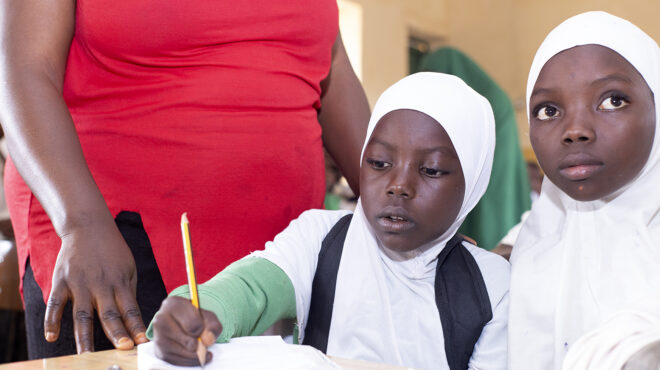The SMILE project, Nigeria
The ‘Support Mainstreaming Inclusion so all Learn Equally’ (SMILE) project is a community-driven initiative to promote inclusive education in mainstream schools.
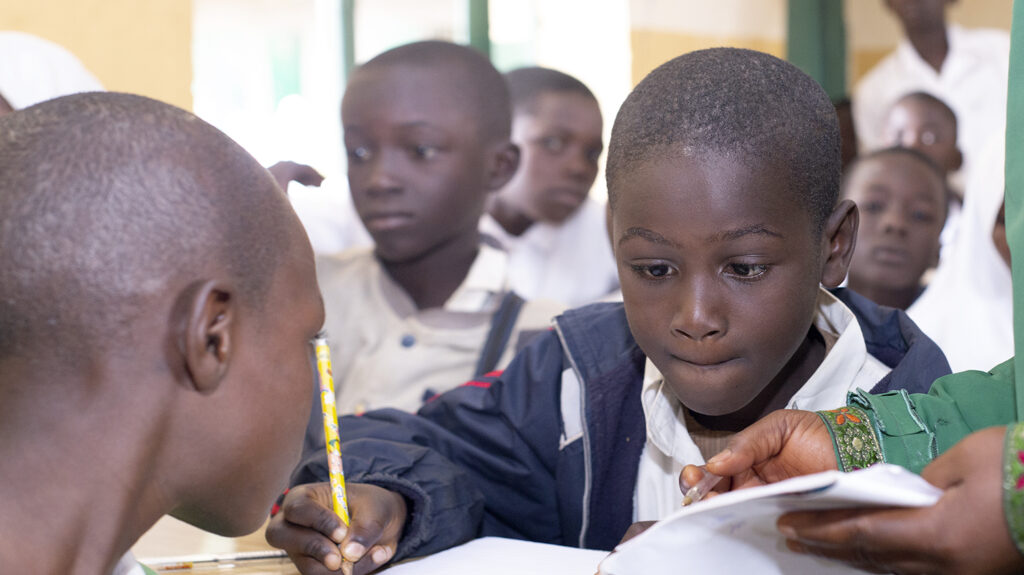
About the project
Nigeria has the highest estimated number of children out of school in the world. These children include large numbers of girls, children from nomadic communities and 90 per cent of Nigeria’s children with disabilities.
Children with disabilities face multiple barriers to participating in education including inaccessible schools, a lack of qualified teachers and support services, discrimination, and an inflexible curriculum.
The UK Aid-funded Support Mainstreaming Inclusion so all Learn Equally (SMILE) project was designed to respond to these challenges and innovate and test a locally-led blueprint for inclusive education in Nigeria between May 2019 and September 2023.
Project partners: Sightsavers, Institute of Development Studies, Nigerian Association of the Blind, Nigerian National Association of the Deaf, Albino Foundation, Home for the Handicapped Persons Foundation, Women with Disability Self-Reliance Foundation, Federal Ministry of Education Nigeria, Ministry of Education Kaduna State, Ministry of Humanitarian Affairs, Disaster Management and Social Development, Kaduna State Universal Basic Education Board.
Project snapshot
The SMILE project has created a locally-led, sustainable and replicable model for inclusive education in Nigeria.
Read moreSherifat’s story
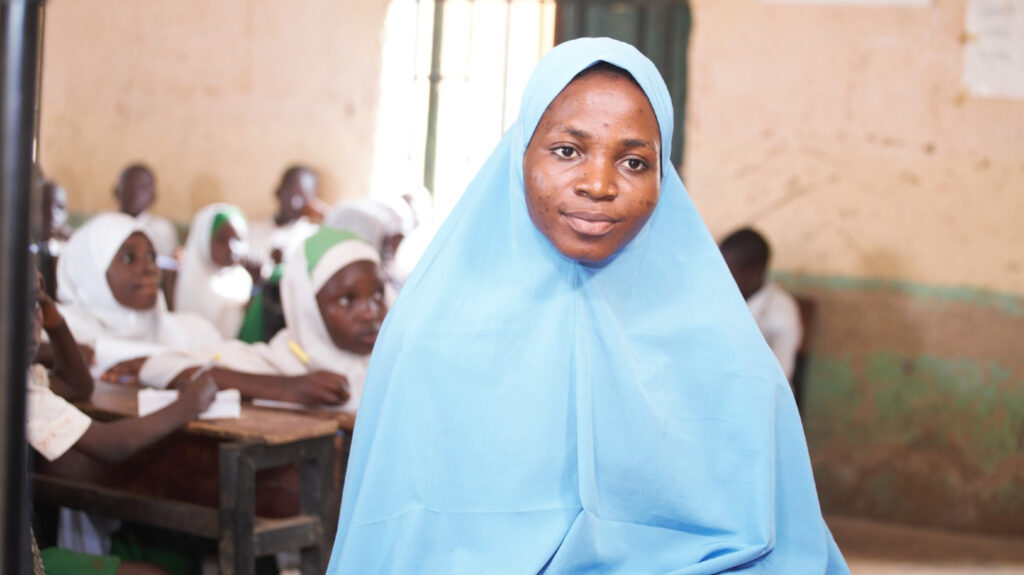
Sherifat is a teacher at one of the SMILE project schools in Kaduna state, Nigeria.
“Through the SMILE project, I’ve received training on inclusive education – we were taught that it is necessary to make education inclusive in such a way that all children will be given opportunity to learn in the same environment regardless of their physical, emotional, social or linguistic capabilities.
“It’s about including children with disabilities, making them feel part of society – enhancing their social interactions, increasing their learning potential and giving them the right, full support when needed.”
Risikat's story
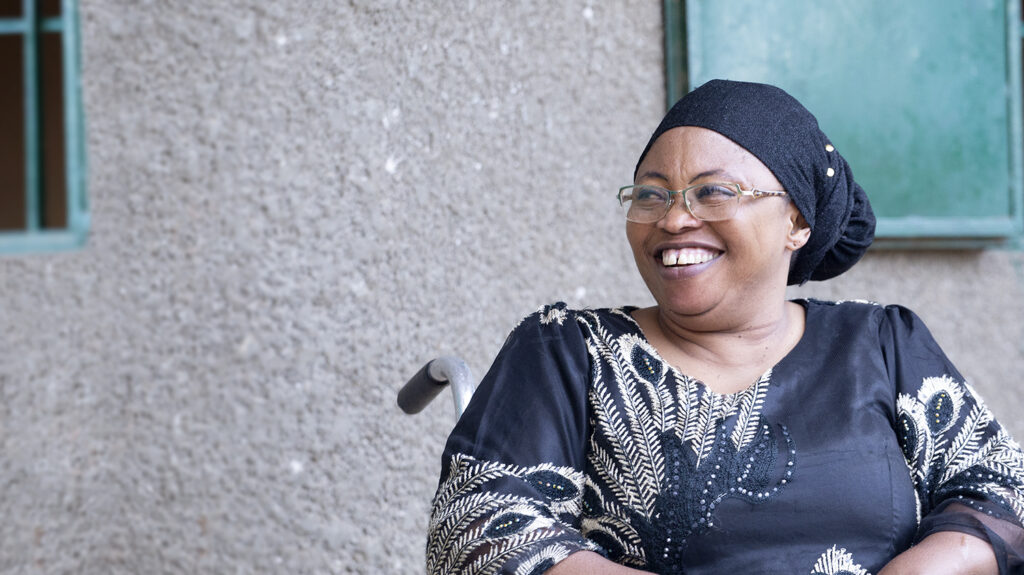
Risikat is the executive director of Women with Disability Self Reliance Foundation, an OPD organisation in Kaduna, and a member of the SMILE project's steering committee.
“The steering committee is a combination of government and OPDs. Our role is to increase the participation of people with disabilities, to make sure that projects are designed in a more inclusive way, and that the voices of people with disabilities are heard.
“The government now realise that we have the potential to lead, to make decisions on issues affecting us.”
More about our education work
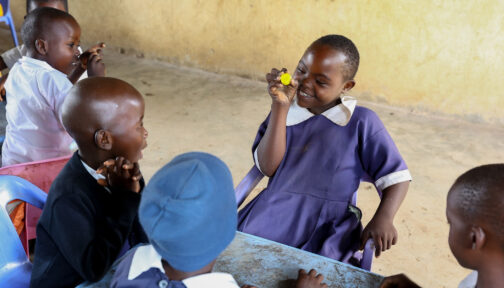
Our work on inclusive early childhood development and education in Kenya
To celebrate World Children's Day, we take a closer look at our work on early childhood development and education in Kenya, and what makes it innovative.
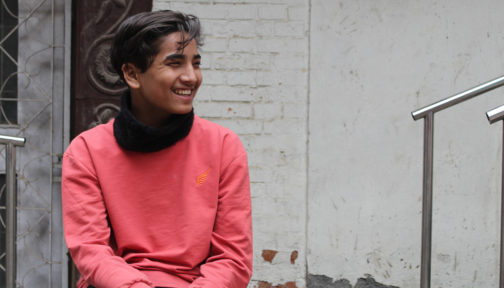
How schools in Nepal are including children with disabilities
As Inclusive Futures moves from testing innovations to delivering development programmes at scale, our inclusive education programme in Nepal is helping children with disabilities return to school.
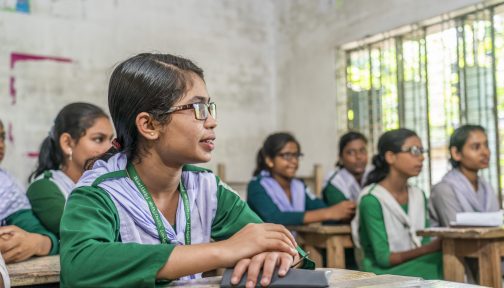
Keeping children with disabilities in education
The COVID-19 pandemic has had a devastating impact on the education of children with disabilities. Inclusive Futures has supported pupils to continue learning at home, and will work to get them back into education when schools reopen.
